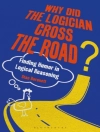Colin Marshall offers a ground-up defense of objective morality, drawing inspiration from a wide range of philosophers, including John Locke, Arthur Schopenhauer, Iris Murdoch, Nel Noddings, and David Lewis. Marshall’s core claim is compassion is our capacity to perceive other creatures’ pains, pleasures, and desires. Non-compassionate people are therefore perceptually lacking, regardless of how much factual knowledge they might have. Marshall argues that people whodo have this form of compassion thereby fit a familiar paradigm of moral goodness. His argument involves the identification of an epistemic good which Marshall dubs "being in touch". To be in touch with some property of a thing requires experiencing it in a way that reveals that property – that is, experiencing it as it is in itself. Only compassion, Marshall argues, lets us be in touch with others’ motivational mental properties. This conclusion about compassion has two important metaethical consequences. First, it generates an answer to the question "Why be moral?", which has been a central philosophical concern since Plato. Second, it provides the keystone for a novel form of moral realism. This form of moral realism has a distinctive set of virtues: it is anti-relativist, naturalist, and able to identify a necessary connection between moral representation and motivation. The view also implies that there is anepistemic asymmetry between virtuous and vicious agents, according to which only morally good people can fully face reality.
Colin Marshall
Compassionate Moral Realism [PDF ebook]
Compassionate Moral Realism [PDF ebook]
Achetez cet ebook et obtenez-en 1 de plus GRATUITEMENT !
Langue Anglais ● Format PDF ● Pages 272 ● ISBN 9780192537560 ● Maison d’édition OUP Oxford ● Publié 2018 ● Téléchargeable 3 fois ● Devise EUR ● ID 7358120 ● Protection contre la copie Adobe DRM
Nécessite un lecteur de livre électronique compatible DRM












